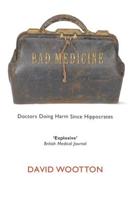Publisher's Synopsis
Historian Jesse F. Ballenger traces the emergence of senility as a cultural category from the late nineteenth century to the 1980s, a period in which Alzheimer's disease became increasingly associated with the terrifying prospect of losing one's self. Changes in American society and culture have complicated the notion of selfhood, Ballenger finds. No longer an ascribed status, selfhood must be carefully and willfully constructed. Thus, losing one's ability to sustain a coherent self-narrative is considered one of life's most dreadful losses. As Ballenger writes "senility haunts the landscape of the self-made man."
Stereotypes of senility and Alzheimer's disease are related to anxiety about the coherence, stability, and agency of the self-stereotypes that are transforming perceptions of old age in modern America.
Drawing on scientific, clinical, policy, and popular discourses on aging and dementia, Ballenger explores early twentieth-century concepts of aging and the emergence of gerontology to understand and distinguish normal aging from disease. In addition, he examines American psychiatry's approaches to the treatment of senility and scientific attempts to understand the brain pathology of dementia.
Ballenger's work contributes to our understanding of the emergence and significance of dementia as a major health issue.











